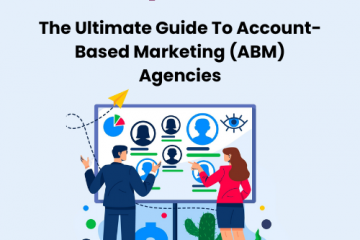4 Ways to Improve Your Pay-Per-Click Campaign’s Profits Quickly
When the internet came into the picture almost 40 years ago, people only intended to use it for military and scientific purposes. However, throughout the years, the internet has grown and evolved. Now it does far more than any of us realized it could.
With each passing day, this powerful tool serves to support more and more ordinary people across the globe. It helps us learn, communicate, connect, and develop. Because of the role it plays in the lives of everyday humans, it’s also become a critical asset in business.
The internet gave businesses the power to get in front of the right people at the right times with the right messages. PPC (pay-per-click marketing) has become a tremendous part of what makes that possible.
While there are many different digital marketing strategies to choose from, PPC presents a unique opportunity to create a balance between budget and immediate impact in a way that packs a punch worth noticing.
What are Pay-Per-Click Campaigns?
Pay-per-click (PPC) campaigns have been a go-to option for many new brands because of their fast results and cost-effectiveness.
They consist of ads that businesses can develop in just a couple of hours, driven by a flexible budget that you get to define. These seemingly simple ad campaigns have the capacity to generate immediate and substantial traffic, leads, and even sales when done correctly.
An important piece of this is that organizations do not have to use up the majority of their marketing budget to create results. They only need to pay when people click on their ads.
PPC ads offer profitable opportunities. They help with brand awareness, website traffic, lead generation, special promotions, and sales.
PPC campaigns can appear on different channels. The most popular are on search engine results pages (SERPs) and social media feeds. However, you can also see them on video streaming sites and websites.
There is a set of rules that details exactly how to craft an effective PPC campaign. Rather than trying to reinvent the wheel, businesses would do well to simply follow these rules. Yet, blindly following the criteria is not enough anymore.
Many businesses are using PPC campaigns to increase their revenue. That means even though you may be doing things right by following the standard rules, your competition may be as well.
In order to stand out, you’ll want to take several additional measures designed to give your PPC campaigns an extra boost against the competition.
How to Improve Your PPC Campaigns
You may already know the basics of creating a PPC campaign. However, it’s important to remember that there are still other things you can do to enhance it.
Here are four tips that will help you improve your PPC campaigns:
1. Consider adding negative keywords
Negative keywords are those you intentionally leave out of your campaign. If you specify these keywords while creating your campaign, search engines will not show your ads on SERPs when people use these keywords.
Adding negative keywords will help you avoid reaching people who are not a part of your target audience. It will save you from unwanted clicks on your ads that may result in additional costs. Ad platforms like Google make it very easy to remove negative keywords.
2. Make single keyword ad groups (SKAGs)
Imagine this: The keywords you choose for your ads do not match the search terms people use most of the time. As a result, potential buyers do not find your ads even though they are looking for your products.
Creating SKAGs will help you gain some control over those search terms. SKAGs allow you to assign search terms as keywords. This means you aren’t just relying on one specific keyword for your targeting– meaning there are more opportunities for you to show up in SERPs.
3. Track all of your parameters
A campaign may consist of multiple PPC ads. They may all work beautifully, or perhaps none of them do. It’s critical to be able to dissect the elements of your campaign that are working and those that need improvement, and why. If you’re experiencing an increase in conversions, you need to know why that is in order to replicate those results reliably.
As Digital Authority Partners suggests, be sure to regularly check the ads you are running across all of your chosen PPC platforms to see which are generating good results for you and why. Knowing this allows you to make critical adjustments to those ads that need additional work while perhaps scaling those that are doing well.
4. Test your campaigns
Putting your campaign to the test is vital to ensure its effectiveness. The most typical test for ad campaigns is the A/B test. This test compares two versions of the campaign to see which works best.
Essential Elements of PPC Campaigns
PPC campaigns consist of several different elements. It’s important to understand how they can work together to create solid and effective campaigns.
Here are some of the things that your PPC campaigns should have:
1. A clear goal
All PPC campaigns have specific objectives. If you are a new business, you may use them to help people get to know you and your brand or to catch the attention of potential customers.
Making your goal clear from the beginning can help simplify the next steps. It eases the decision-making process for the rest of your campaign development and even helps with tracking and making improvements.
2. A set budget
It’s true that with PPC you only have to pay when someone clicks on your ad. However, it is still essential to finalize the total amount of money you are willing to pay for the campaign.
You will have to bid for the placement of your ads. There is no fixed price for PPC ads since not all searches and internet users are alike. Moreover, some topics will be more popular than others.
3. A defined target audience
For best results, focus only on a specific group of people. Do not target everybody — instead, center on the individuals who will actually use your products and services.
In addition, if you have a local brick-and-mortar business, it’s helpful to focus on locals, as they are the ones most likely to come to see you. If you use Facebook ads, you can also specify your audience’s interests and behaviors for better targeting.
4. Keywords
Using the right keywords in your ads is crucial. Search engines only show PPC ads on a user’s SERPs when it uses keywords similar to the search term that an individual typed into the search bar.
Knowing your target audience can help you determine the keywords they will most likely use if they search for solutions like yours. Stay away from popular keywords as there will be a lot of competition.
5. A targeted landing page
PPC campaigns are developed to serve specific business objectives. That means that the correct route may not always be to send those who click on your ads directly to the home page of your website.
Instead, it’s often far more beneficial to craft unique landing pages that are congruent with the messaging in your ads to go along with them. This will quickly let them know how you can help them and invite them to take the next steps.
Final Words
Thinking outside of the box and developing innovative ways to improve your campaigns can go a long way when it comes to optimizing the performance of your ad while dropping the costs.
PPC campaigns are flexible, malleable tools to help you reach your business goals quickly. However, be sure not to experiment with them blindly. Analyze all the essential data you have and find the gaps. This is how you improve over time.
Don’t just stick to the basics. Go the extra mile. Get those clicks and your money’s worth.
Sell more, understand your customers’ journey for free!
Sales and Marketing teams spend millions of dollars to bring visitors to your website. But do you track your customer’s journey? Do you know who buys and why?
Around 8% of your website traffic will sign up on your lead forms. What happens to the other 92% of your traffic? Can you identify your visiting accounts? Can you engage and retarget your qualified visitors even if they are not identified?



